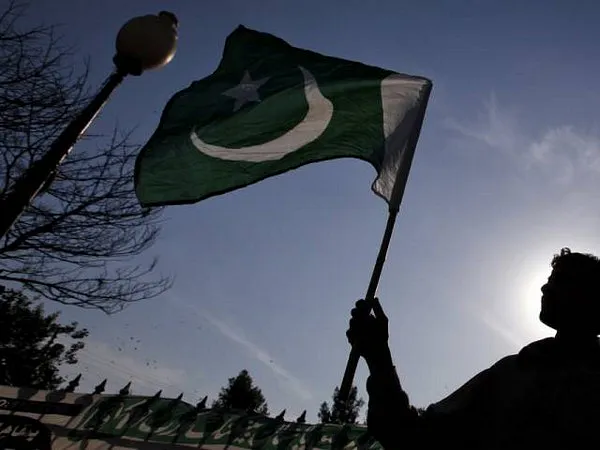Pakistan Police arrested a journalist for allegedly reporting on the plight of Pakistani Hindus trapped in the ongoing floods in Pakistan’s Sindh province. These affected people later claimed that they were deprived of basic resources to survive the calamity, local media reported.
Pakistan Police on Wednesday arrested journalist Nasrallah Gaddani and took him on 5-day remand for covering the story of Pakistani Hindus belonging to the Bhagri community in Sindh’s Mirpur Mathelo. The journalist reported that the local administration had expelled the people of the Bhagri community from the flood relief camp for being Hindus, media reports said.
A video of the coverage went viral on social media exposing the atrocities of the Pakistan government and authorities on Hindu minorities, which often claim that minorities in the federal country are safe and lead happy life.
In the video, flood victims are seen crying and explaining their poor condition in the country after being denied basic resources including water, food and shelter amid the catastrophic natural disaster which has affected over 33 million people.
The people of the Hindu Bhagri community, in the video, were seen narrating their terrible situation and the treatment of the local administration toward them. They said that the local administration had expelled them from the flood relief camps, telling them that they were not flood victims.
A victim can be seen crying and saying, “We have been expelled for being Hindus. They have refused to provide us with even food and water. They think we are not victims of floods. Where shall we go now? How should our children survive?” “We are poor and lost our house to the flood. And local administration tells us that we are not flood victims. We have small children with us.”
“Where shall we go now? How do we survive without food and water?” another victim adds.
The recent flood situation in Sindh province has only added to the plight of Hindus, who have already been facing adversity and severe institutional discrimination in Pakistan.
In contrast, the Hindu community in Balochistan has come up with a gesture of humanity and religious harmony, by opening the doors of a temple to shelter flood-affected people.
A tiny village of Jalal Khan in the Kachhi district of Balochistan has been cut off from the rest of the province due to the floods. The floods in the country have destroyed houses and left mass destruction in their wake, Dawn newspaper reported.
Locals have opened the doors of the Baba Madhudas Mandir, as per the publication.
The flash floods have badly impacted 80 districts of Pakistan and the death toll from floods in the country has reached nearly 1,200. The death toll from floods in Sindh surged to 621 as 12 more people died during the last 24 hours on Sunday.
The water level in Manchar Lake, the nation’s largest freshwater lake, is continuously rising. Rising floodwaters have washed away the first defence line of the city of over one million people, forcing the administration, backed by army troops, to strengthen the remaining embankments.
Thousands of people have been lodged in tents or are waiting for shelter under open skies along the main highway that leads to Hyderabad. Either side of the highway could be seen inundated by floodwater for miles.
Hundreds of citizens were seen leaving the city on mini-trucks, vans and rickshaws. Many others along with their livestock were also spotted trudging along the road under the baking sun, reported Geo News.
Record monsoons and heavy floods in Pakistan have given rise to hunger and various illnesses which have affected 33 million people and are estimated to have caused USD 30 billion of damage.
The experts believe that the situation would aggravate in the coming days as the flood affectees are forced to live under the sky depriving the required resources.
Huge areas of the country are still underwater and hundreds of thousands of people have been forced from their homes. The agriculture sector faces the worst blow as the agriculture growth might remain zero or slide into negative against the envisaged target of 3.9 per cent for the current financial year 2022-23.
Sindh Chief Minister Murad Ali Shah said that around three to six months will be required to drain out rain and floodwater from submerged areas of Sindh province as the fFlooding and rainfall have destroyed thousands of houses in Sindh with around 1500 deaths.
The people have lost livestock of around 50 billion rupees, he said.
Over 1.2 million hectares of agricultural land have been damaged in Sindh whereas over 1.5 million houses have been destroyed by flood waters, according to a UN report.
The Pakistan Meteorological Department said that it was the wettest August since records began in 1961. National rainfall was 243 per cent above average. In the province of Balochistan, it was +590 per cent and in Sindh +726 per cent, according to the monthly report.

